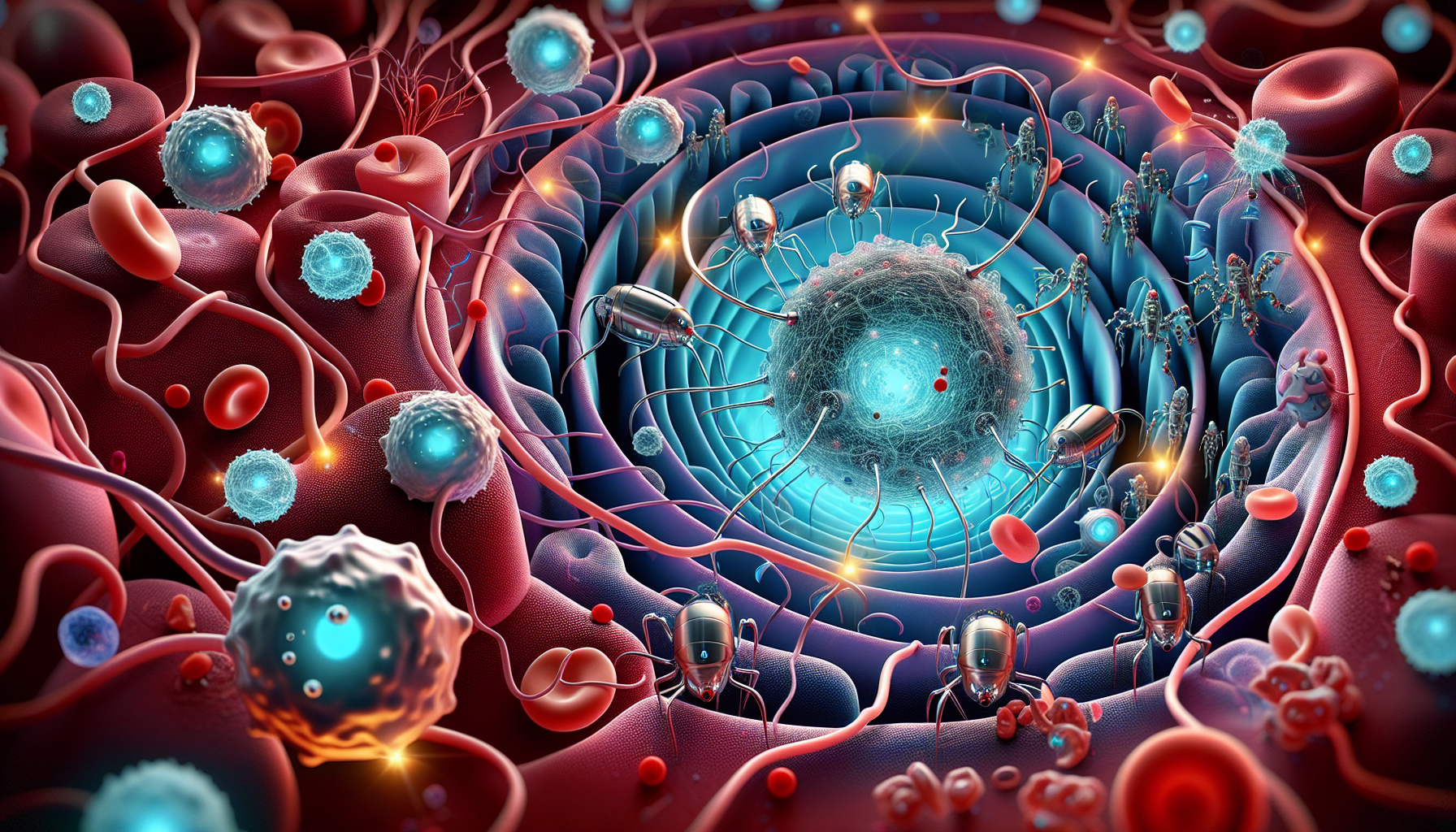Groundbreaking Nanotechnology Revolutionizes Cancer Treatment
Groundbreaking Nanotechnology Revolutionizes Cancer Treatment
In a significant breakthrough in the field of medical science, researchers from the Massachusetts Institute of Technology (MIT) have developed a novel nanotechnology-based treatment that promises to revolutionize cancer treatment. The new approach, which was announced on March 19, 2024, uses nanoparticles to deliver targeted therapy to cancer cells, leaving healthy cells unharmed.
 The innovative treatment, which has been hailed as a game-changer, uses nanoparticles to deliver a combination of two drugs to cancer cells. The nanoparticles are designed to be attracted to cancer cells, where they release the drugs to kill the cancer cells directly. This targeted approach reduces the side effects often associated with traditional cancer treatments, such as chemotherapy, which can also damage healthy cells.
The innovative treatment, which has been hailed as a game-changer, uses nanoparticles to deliver a combination of two drugs to cancer cells. The nanoparticles are designed to be attracted to cancer cells, where they release the drugs to kill the cancer cells directly. This targeted approach reduces the side effects often associated with traditional cancer treatments, such as chemotherapy, which can also damage healthy cells.
The research team, led by Dr. Robert Langer, a renowned scientist in the field of biomedical engineering, has been working on this project for several years. The team’s findings were published in the prestigious journal, Nature Nanotechnology, where they detailed the successful laboratory tests conducted on mice. The next step for the team is to conduct clinical trials on humans, which they hope to commence later this year.
While this groundbreaking development is still in its early stages, it has the potential to transform the way cancer is treated. The targeted approach could significantly improve the quality of life for cancer patients, reducing the debilitating side effects associated with many current treatments. It also opens up the possibility of treating cancers that are currently resistant to existing therapies.
This development is a testament to the power of nanotechnology and its potential to revolutionize various fields, including medicine. It also underscores the importance of continued investment in scientific research and development, which can lead to life-changing breakthroughs like this one.
Sources:
The information in this article is based on a press release from the Massachusetts Institute of Technology and the research paper published in Nature Nanotechnology. The research was funded by the National Institutes of Health and the National Cancer Institute.
